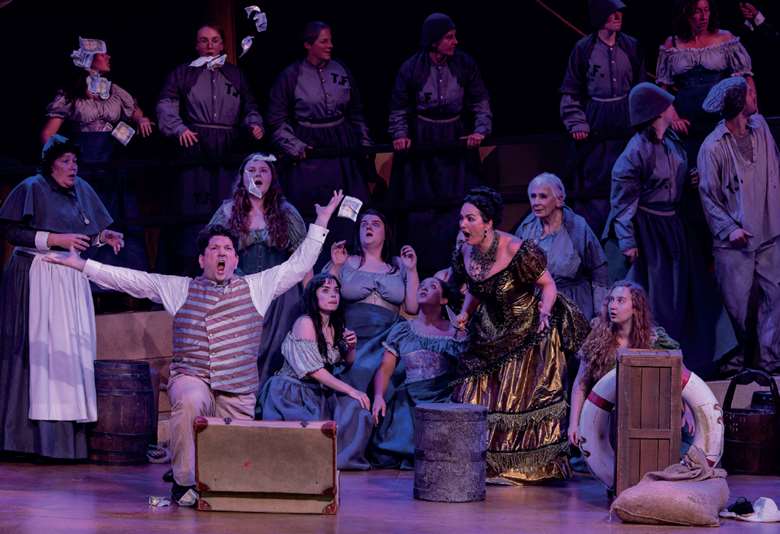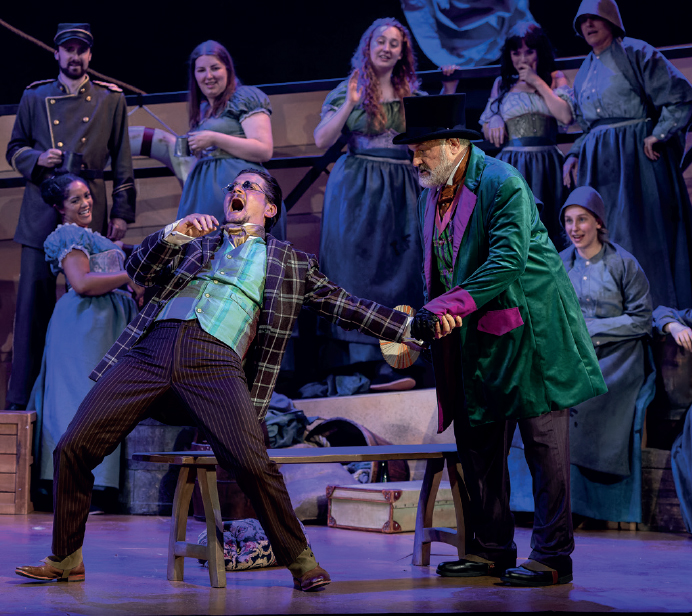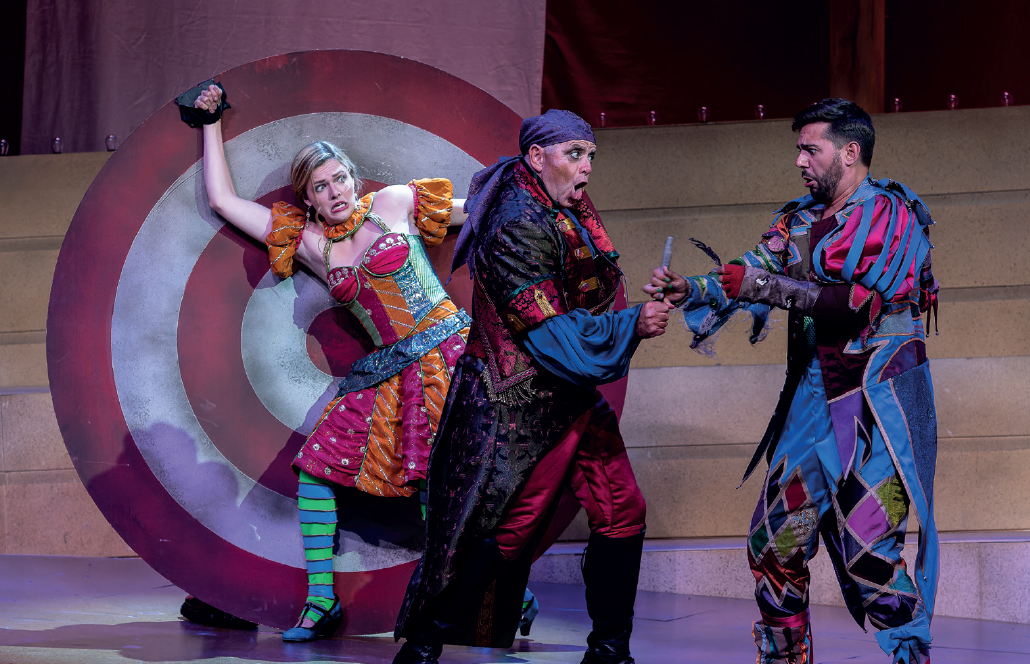Dorset Opera Festival: Manon Lescaut and The Magic Flute | Live Reviews
George Hall
Friday, September 2, 2022
The chorus is always a central focus of Dorset's set-up and once again made a strongly positive impression. Photography by Julian Guidera

Manon Lescaut
Over the period while former bass Roderick Kennedy has been the company's artistic director, Dorset Opera has extended its season and raised its standards: in particular, his long experience as a leading singer has helped bring in quality casts year after year to undertake the roles in the festival's two major summer productions.
The 2022 season at Bryanston opened with Puccini's Manon Lescaut - the first of the composer's great operas, but equally a work that makes huge demands of the singers of the two central roles.
As Des Grieux, there were moments here and there when American Todd Wilander's sizable tenor faltered; but even though somewhat stiff on stage he gave a solid account, both vocally and dramatically, of a character whose alliance with the equally unfortunate Manon leads them both to disaster.
Following her success as Donna Anna for Nevill Holt in 2021, Puccini's title-role was another major achievement for Anna Patalong; during the lengthy course of the opera's trajectory her lush, rich-toned soprano kept faith with Puccini's notes every step of the way.
Combined with her apparently tireless singing, her dramatic acumen allowed Patalong to explore the role in a way that balanced skilfully Manon's desire for true love with her equally pressing need to live in luxury. The result was a formidable interpretation.
The opera's secondary roles are just that: but Gyula Nagy nevertheless created a three-dimensional portrait of Lescaut, Manon's deplorable pimp of a brother, while Amber Reeves-Pigott brought her memorable mezzo to bear on the solo sung by the Madrigal Singer in Act II.
Worthwhile performances from Eddie Wade as Geronte - Manon's elderly admirer, though more harmless than he should be when treated as a comic character - and from Alberto Sousa's altogether likable Edmondo.
Christopher Cowell's production was regrettably encumbered with silent actors playing the roles of Manon, Des Grieux and - to add further to the confusion - the Abbé Prevost, whose 18th-century novel has inspired countless other works besides Puccini's 1893 dramma lirico. These additional figures were seriously distracting.
Placing the action on board the ship that takes the two disaster-impelled lovers to North America didn't work either, though Bridget Kimak's spare set for the final scene was ideal - until suddenly the silent Manon character turned up in time to seize the audience's attention from a soprano and a tenor who had just knocked us sideways with their vocally empowered desperation.
MUSIC ★★★
STAGING ★★
The Magic Flute
Far more successful was Paul Carr's staging of The Magic Flute, sung in a clever English version by Christopher Cowell. The concept - if that's not too hifalutin a term - was that the characters were members of a travelling circus which Prince Tamino wished to join.

Gyula Nagy as Lescaut and Eddie Wade as Geronte
Sarastro was the ringmaster, the Queen of the Night the chief attraction as a trapeze artist, Monostatos the knife thrower, Pamina his assistant, and so on.
While such a set-up clearly meant that the piece's Masonic and philosophical elements didn't get much of a look-in, the visuals - and especially Stewart J Charlesworth's bright and breezy costumes - were regularly delightful. Overall, this was a fun show - as Mozart's Singspiel needs to be.

The opening scene of Magic Flute, with Ted Black as Tamino
It was also superbly well sung from everyone on stage. Jamie Groote's limpid, liquid soprano excelled as Pamina, with Ted Black's fluent tenor (Tamino) ideally scaled for Mozart's line in a theatre of this size.
Hannah Sawle brought off all the difficulties for which the role of the Queen of the Night is notorious, while Ossian Huskinson's Sarastro showed remarkable breath-control, clarity of diction and tonal refinement.
Papageno - the role librettist Schikaneder wrote for himself to play - requires an ability to make the audience warm to you which Felix Kemp possesses in spades: his vocal performance was delivered with distinction and his dialogue perfectly judged.

Hannah Sawle as The Queen of the Night and Ossian Huskinson as Sarastro
Marvellous contributions from Aled Hall's horrid Monostatos - the balance of villainy and comedy astutely caught - and Caroline Kennedy's entirely successful Papagena.
Excellent teams of Ladies (Naomi Harvey, Anne Marie Owens, Gaynor Keeble and Clowns, usually called Boys, (Lydia Mee, Charlotte Forfar, Annie George) - were further assets. Stuart Pendred was a notably strong Speaker, sharing the duos of Priests and Armed Men with the equally fine Jamie Formoy.
The chorus is always a central focus of Dorset's set-up and once again made a strongly positive impression: Nicolas Mansfield was guest chorus director, Christopher Middleton his assistant.
Due to the indisposition of the festival's music director, Jeremy Carnall, José Miguel Esandi - already slated for Manon Lescaut - took on both shows. His command of each score was total and his technique enlivening, bringing tremendous character and engagement to his task. The orchestra was on top form for both scores.
MUSIC ★★★★
STAGING ★★★★







